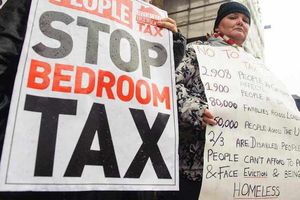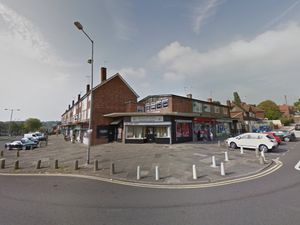Man strikes blow in Sandwell Council bedroom tax hearing
A severely-disabled man has struck an embarrassing blow against Sandwell Council at the High Court after the controversial bedroom tax left him unable to pay his rent.

The court ruled in favour of retired bus driver Michael Hardy, aged 60, from Oldbury, who had his housing benefit cut after the council decided his house was under-occupied.
Mr Hardy was left disabled due to serious heart problems and arthritis, and lives in a specially-adapted house with his wife, who is also disabled.
The court heard the couple often had Mr Hardy's elderly mother, who suffers from dementia, to stay.
Under the law, the couple had their housing benefit cut by £25 which left them more than £23 a week short on their rent.
They were told they only needed the one bedroom.
The house had been 'specially adapted for them and all attempts to find them a smaller home had failed', said judge Mr Justice Phillips.
Despite applying for relief from Sandwell Council, Mr Hardy was told he had a 'surplus income' of £16 a week and was only offered a discretionary house payment (DHP) of £6.69 a week to cover the rent deficit.
Mr Hardy mounted a challenge to the council's stance on his benefits.
Mr Hardy's claim was upheld by the court, with Mr Justice Phillips saying the council had 'adopted an inflexible policy and fettered its own ability to consider every case on its own merits'.
Justice Phillips said that discretionary house payments were designed to protect the private and family life of disabled people and to keep them in their own homes.
He ruled that the council's policy discriminated against Mr Hardy because of his disability, which amounted to a breach of his human rights.
He said: "It is difficult to see any reasonable justification for the council's approach, nor that it was a means of achieving a legitimate aim, let alone a proportionate one".
The result means the council is now required to 'urgently reconsider' Mr Hardy's entitlement.
Meanwhile, the law firm behind the victory said it could have serious ramification for the rest of the country.
Fiona McGhie, the specialist public lawyer at Irwin Mitchell, said: "The council's policy has been struck down as being unlawful. Where the bedroom tax leaves a black hole in a disabled person's household budget – the council cannot demand that they fill that black hole with disability living allowance.
"The decision is an important one which provides important clarity on whether councils should include disability related benefits as income when considering applications for DHP to help with housing costs.
"This ruling has ensured that the voices of our clients have been heard and I believe the decision will have far-reaching consequences for a number of local authorities adopting similar policies. It is vital that the welfare of vulnerable people always comes first and every council should ensure this is a core focus."
Sandwell Council said it 'welcomed' the judgement.
Neeraj Sharma, director of governance, said: "Like many other local authorities, we took the care component of disability living allowance (DLA) into account as income when calculating DHP. Sandwell was used as a test case. This now clarifies the situation for us and for other councils up and down the country. We will be changing our policy to ensure DLA is no longer taken into account."





